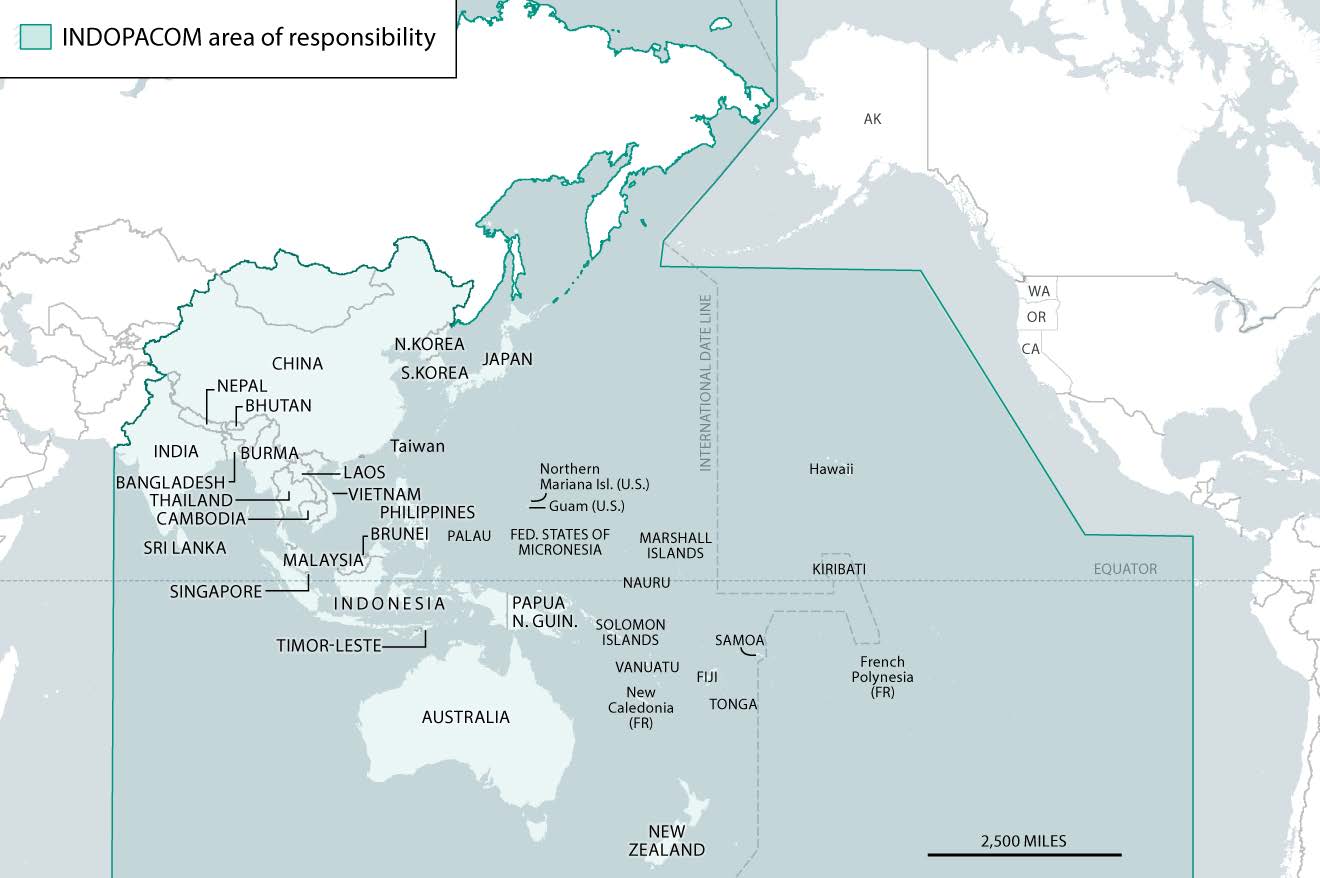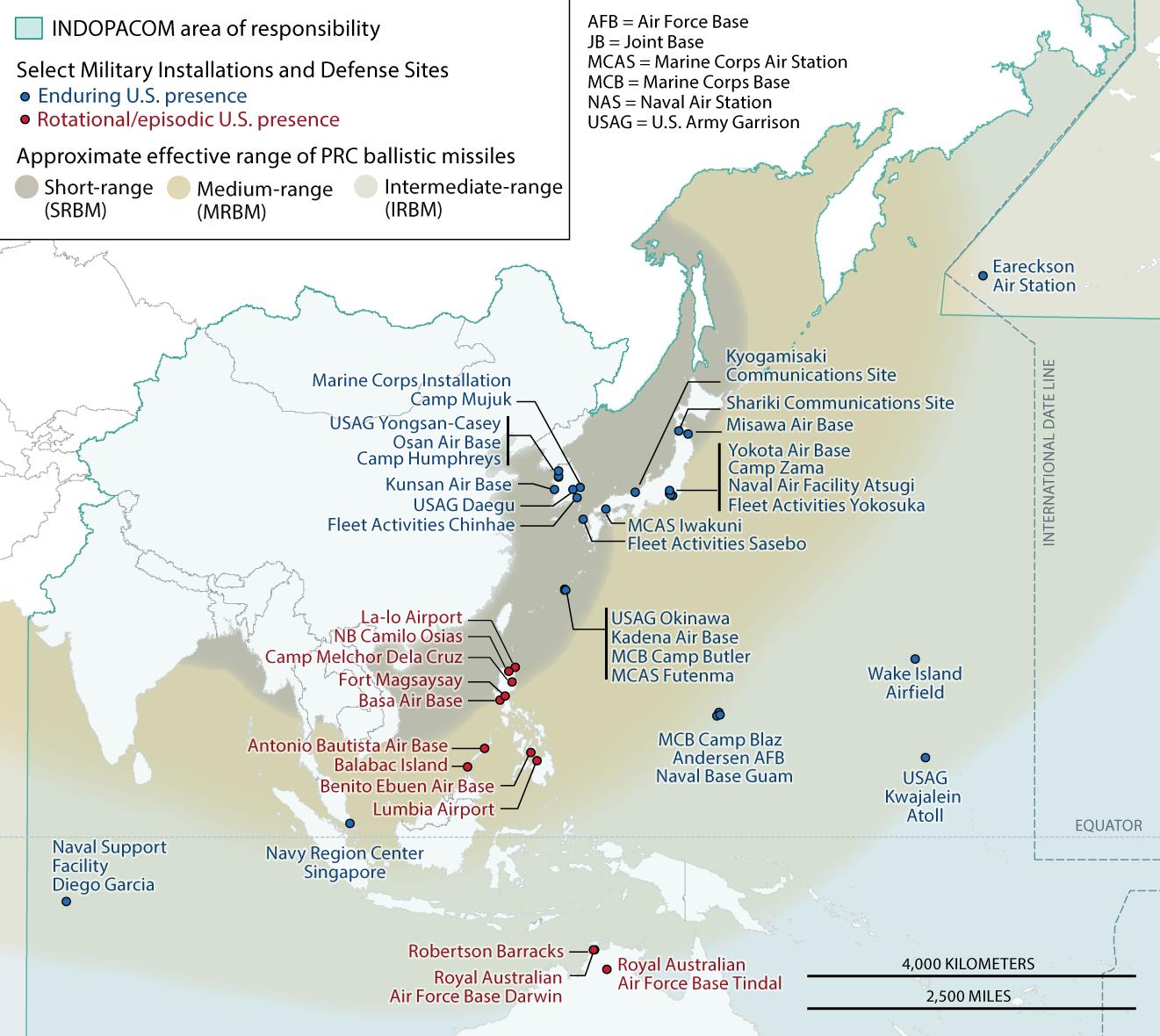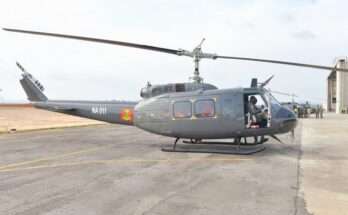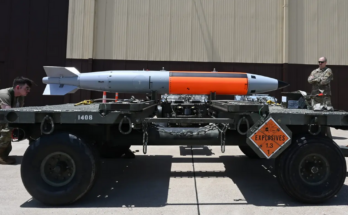
In January, the archipelago nation of Nauru severed diplomatic ties with Taiwan in favor of formal relations with China, reducing the number of countries recognizing Taipei’s sovereignty to eleven. Nauru’s Beijing defection is one of 10 to occur since 2016. The increase in diplomatic reorientation favoring China threatens Western security assets, particularly in the Indo-Pacific, as the threat of a maritime dispute looms.
Nauru’s announcement occurred just days after Taiwan’s presidential election and was timed strategically by China to appear as a rebuke to Taipei. Taiwan’s election resulted in a victory for Democratic Progressive Party (DPP) member and former Vice President William Lai. Lai’s predecessor, Tsai Ing-wen (2016-2024), also from the DPP, advocated for Taiwanese sovereignty—a stance Lai is expected to uphold.
China’s influence in the Pacific Islands, exemplified by increased investments through the Belt and Road Initiative and aggressive diplomatic assertion, threatens to alter the balance of power in the region. With Nauru’s defection, Lai’s presidency begins at a critical juncture, facing reduced international support even before his inauguration.
Nation Status
The question of Taiwan’s sovereignty is complex and contentious. While Taiwan was officially recognized as a country by the United Nations from 1949 to 1971, the approval of the 193 member states required for statehood has dwindled to eleven (and Vatican City) as of May 2024.
Taiwan’s barrier to statehood is fortified by China’s One-China policy, which asserts that Taiwan is a breakaway province destined for reunification with the mainland. This policy prevents any nation from maintaining official diplomatic relations with both China and Taiwan.
As a result, the U.N. classifies Taiwan as a territory, however many nations including the U.S., Japan, France, Germany and the United Kingdom maintain unofficial relations.
Trail of Defection
Beijing’s aggressive push to diplomatically isolate Taiwan has made significant inroads in the South Pacific, Africa, and Latin America.
Between 2016 and 2024, China swayed 10 countries to renounce ties with Taiwan, including Honduras (March 2023), Nicaragua (Dec. 2021), Burkina Faso (May 2018) and El Salvador (Aug. 2018). At the same time, Beijing has negotiated an increased military presence in these states and ownership over critical infrastructure funded through the Belt and Road Initiative (BRI).
Solomon Islands. In 2019, the Solomon Islands severed its 36-year relationship with Taiwan. In conjunction, the Island began the process of entry into China’s Belt and Road Initiative (BRI). The Solomon Islands has since called for a review of a long-standing security pact with Australia, entered into an agreement with China that permits the presence of Chinese troops on the island, and elected pro-China prime minister Jeremiah Manele in May 2024.
This development alarmed the United States and regional allies, Australia and New Zealand, who fear that the agreement could pave the way for a permanent Chinese military presence less than 1,200 miles (2,000 km) from Canberra’s Coast.
Additionally, Beijing reportedly promised US$730 million in financial aid to the Solomon Islands, as well as a US$66 million infrastructure loan allocated for the construction of 161 mobile communications towers supplied by China’s Huawei.
This form of “money diplomacy,” whereby China offers substantial financial incentives to nations seeking investment for infrastructure in exchange for diplomatic allegiance and resource rights, has become a hallmark of Beijing’s defense strategy over the last two decades.
Kiribati. Kiribati ended its 16-year relationship with Taiwan in 2019. Unable to secure robust financial aid from Taiwan due to Taipei’s international aid law restrictions, the country turned to China for support. Kiribati subsequently joined the Belt and Road Initiative (BRI) in 2020, prompting Beijing to establish an embassy, deploy agricultural and medical teams, invest in fishing infrastructure, and plan the reconstruction of a strategic WWII-era airstrip on Kanton Island. Positioned along major sea lanes connecting North America, Australia, and New Zealand, the U.S. and its allies fear refurbishing the airstrip could lead to potential military expansion by China, similar to its actions in the South China Sea.
Nauru. Nauru, the latest country to sever ties with Taipei, has yielded substantial benefits from its pivot toward Beijing. In addition to China’s commitment of US$100 million annually in grants and debt repayments, trade between China and Nauru reached US$5.9 million in 2023. However, the long-term benefits of this newfound financial support remain uncertain. Nauru, which uses Australian currency and relies heavily on revenue from fishing licenses and a regional processing center for refugees managed by the Australian government, faced a setback in December 2023. An Australian bank, the only banking service provider in the country, announced plans to close its Nauruan operations, casting doubt on the stability of Nauru’s financial future.
Implications of Increased Chinese Presence
Beijing’s interest in the Pacific Island nations has become increasingly notable. According to the Council on Foreign Relations, China’s direct investment in the region increased from $900 million in 2013 to $4.5 billion in 2018 – a 400 percent mark-up. This surge enhances China’s territorial access and strengthens its financial influence.
A January 2023 report, by the Center for Strategic and International Studies (CSIS) highlighted the devastating impact of Chinese expansion in the event of a maritime conflict. The wargame simulations depicted the early stages of a hypothetical U.S.-China war triggered by China invading Taiwan. The results indicated that China would likely use missiles to attack U.S. bases in Japan, Okinawa, and Guam, damaging critical equipment and severely limiting Washington’s ability to aid Taiwanese air and naval operations.
China’s expansion in the Indo-Pacific region consequently puts Western assets at risk, namely over 40 defense sites and over 100,000 personnel hosted on various ally territories. The U.S. has begun considering the threats posed by adversary short and medium-range ballistic missiles and Anti-Access/Area Denial (A2/AD) strategies in its decision regarding the stationing of future military equipment and base upgrades.
Regional Missile Threat
Notional ranges of PRC ballistic missiles and U.S. regional defense sites

Countermoves
The United States and its allies have deployed comprehensive economic and diplomatic strategies to counter China’s influence in the Indo-Pacific.
In 2023, the U.S. bolstered its regional presence by opening new embassies in the Solomon Islands, Tonga, and the Maldives, with plans for embassies in the Cook Islands and Niue. Additionally, the U.S. signed a security agreement with Papua New Guinea in May 2023 to develop military bases, responding directly to China’s 2022 security pact with the Solomon Islands.
Since 2011, the U.S. has gained access to 12 new defense sites in the Philippines and Australia and built installations in Japan and Guam. Financially, the U.S. committed US$810 million in new aid for the Pacific Islands and over US$8.9 billion through the Pacific Deterrence Initiative (PDI) for regional military projects. However, these numbers remain fractional in relation to Chinese investments.
The Pacific Islands Forum (PIF) has been a critical venue for resisting China’s influence. China’s push for its China–Pacific Island Countries Common Development Vision was met with skepticism. Leaders like Samoa’s Prime Minister Fiame Naomi Mata’afa and Micronesian President David Panuelo criticized the plan, with Panuelo labeling it as a guise for Chinese control. Tuvalu, Fiji and the Marshall Islands have all similarly shown their support for Taiwan and their Western alliances.
* * *
Nauru’s recent shift in allegiance from Taiwan to China exemplifies the ongoing geopolitical struggle in the Indo-Pacific. This realignment, along with the significant investments and diplomatic pressures exerted through China’s Belt and Road Initiative, underscores the precarious position Taiwan finds itself in, as its diplomatic support continues to wane. The consequences of such defections extend beyond mere diplomatic losses for Taiwan; they signal a broader shift in regional power dynamics that threaten Western security interests. As China fortifies its presence and infrastructure in these strategically crucial islands, the potential for maritime disputes and conflict heightens, prompting the United States and its allies to reconsider their strategic and military positioning in the region.
Aja Melville is an accomplished editor and analyst with expertise in open-source intelligence (OSINT) and database management. As the Weapons Editor and Analyst at Military Periscope, Aja has applied her analytical skills and in-depth knowledge in military affairs and global defense sector advancements, particularly focusing on China and the Asia-Pacific region.
Aja's commitment to international relations and Asia-Pacific focus is highlighted by her educational background. She holds a Bachelor of Arts in International Relations and Chinese Language from Bard College, complemented by a Certificate of Advanced International Studies from the Bard Globalization and International Affairs Program. Aja further expanded her linguistic skills with a Certificate of Intensive Language Studies in Chinese (Mandarin) from Qingdao University.




